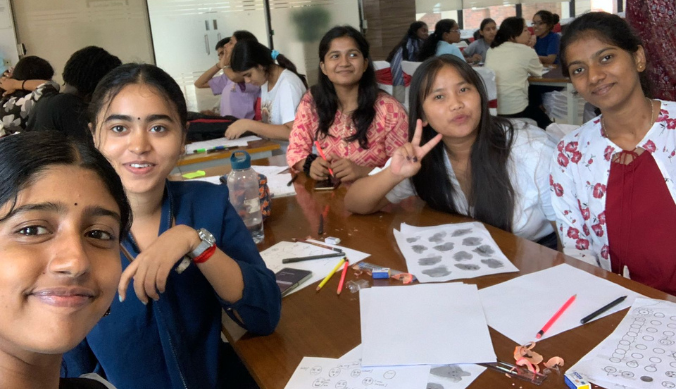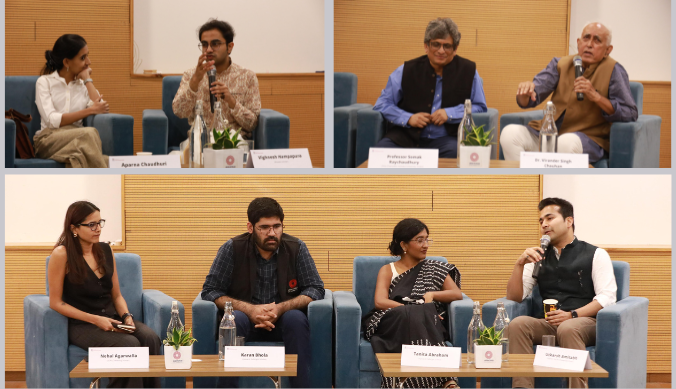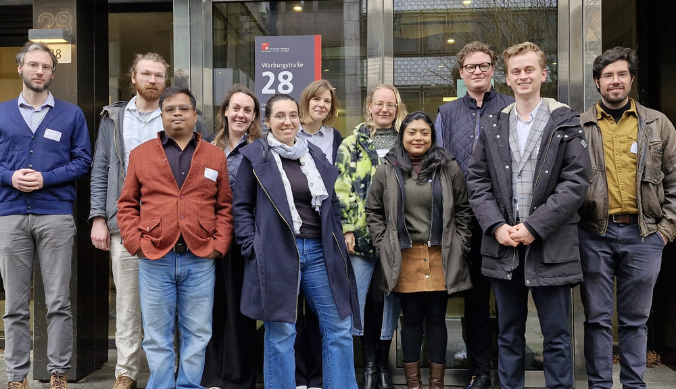The proposed School of Advanced Computing and the road ahead for Computer Science at Ashoka University
Ashoka University aims to be among the foremost academic institutions for future-focused computer science (CS) research and teaching. Prof. Subhashis Banerjee writes about the key developments that are all set to unravel over the coming months
The Ashoka School of Advanced Computing (ASAC) will be situated in a liberal arts environment, and, as such, will be distinct in character from other academic computer science establishments in the country. It will endeavour to introduce the epistemological methods of computer science – algorithmic problem solving, argumentative methods, logic, impossibility results, models of universal computation, process models, systems and security frameworks, complexity analysis and the limits of computation and communication, AI and data-driven models – into multidisciplinary research spanning the natural, social, and political sciences. It will also build a unique programme that will expose Ashoka students to computational thinking with CS+X courses at all levels, and train graduate leaders with strong humanistic and ethical perspectives in addition to strengths in core computer science.
In addition to the department of computer science – which will engage in core disciplinary CS research and teaching – the ASAC will initially be composed of three centres with focussed research themes.
The first of these is the Centre for Data Science and Analytics (CDA). It envisages providing a common data infrastructure platform for all data initiatives at Ashoka University. Apart from well-established research centres like the Centre for Economic Data Analysis (CEDA) and the Trivedi Centre for Political Data (TCPD), it will also host repositories for a variety of other types of data, ranging from clinical, health and epidemiological, to satellite, GIS, and remote sensing, to data related to agriculture, food and nutrition, ecology, astronomy and even humanities, languages, and history.
Apart from common data and computing infrastructure, it will also share various standard tools and techniques for data cleaning, analysis, and visualisation with various research verticals across Ashoka. Moreover, it will organise these disparate components of data – to the extent possible – into a common knowledge graph with a rich metadata structure to enable new research questions using this multidimensional data. We are hopeful that such a rich data repository and organisation will attract new researchers to Ashoka, and generate new research questions even for core computer science and AI.
The second centre, which is already operational as a limited project in collaboration with the Trivedi School of Biosciences (TSB), is the Centre for Health Analytics, Research, and Trends (CHART). The Centre is already engaging with data-driven health analytics questions using clinical data – including radiology and pathology images and reports, laboratory reports and prescriptions – towards improved diagnosis and understanding of diseases like breast cancer, and lifestyle diseases like diabetes and hypertension.
The Centre will also focus on the epidemiology of both infectious and non-infectious diseases and has already done impactful work on understanding the spread of Covid. The Centre has further plans to initiate research into the socio-economic and environmental determinants of health, by trying to correlate – at the individual level – food and nutrition, lifestyle and environmental exposure, to disease burden. One-health will be a major focus of the centre at a later stage. CHART may later merge with a Centre for Digital Health (CDH) which is also being planned at Ashoka.
The third proposed centre will focus on digitalisation and society. The scale and scope of digitalisation, and the use of AI in public life in India, are unmatched in the world, especially in large public service applications. The use of such technologies is not only restricted to the Government but is also growing rapidly in the private sector. This provides a unique opportunity to generate new research questions around safe and secure design, and ethical deployment of such technologies at scale. Computer science at Ashoka – situated in a liberal arts environment among strong departments of economics, sociology, political science and philosophy – is ideally poised to undertake such research.
We envisage that these centres will not only provide new and original research contexts, but will also help build partnerships with government and private entities, inform public policy, and promote entrepreneurship. We hope to formally announce the ASAC sometime soon.
(Prof. Subhashis Banerjee was formerly the HoD for Computer Science. He plans to join back the Department of Computer Science at Ashoka University in September 2023.)
Study at Ashoka













